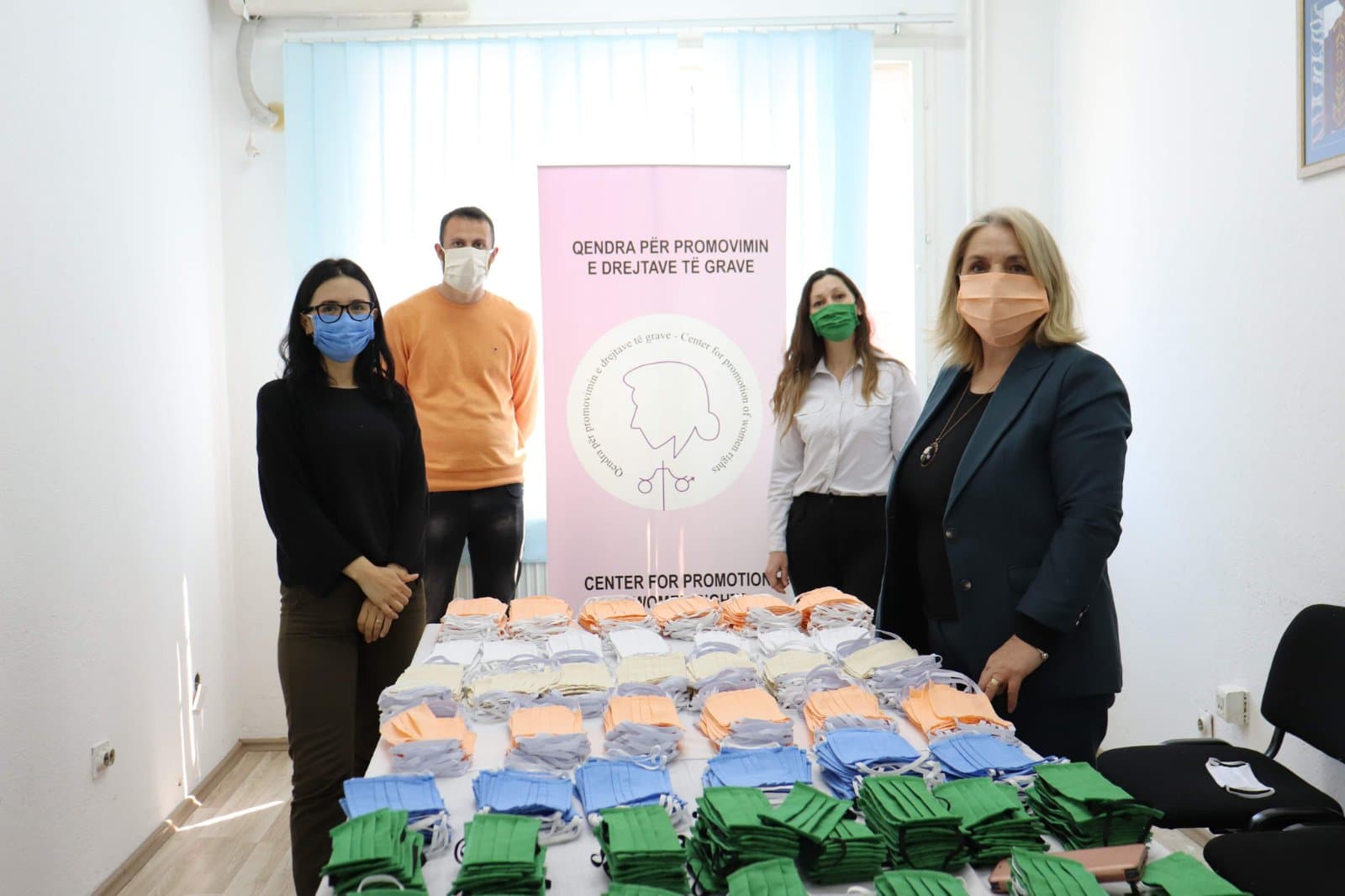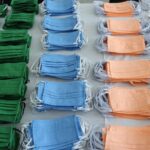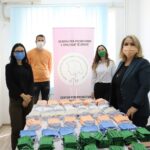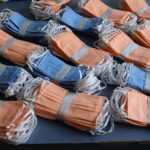
The women survivors of sexual abuse from war in Drenas, Kosovo have been selling handcrafts to earn their income for more than two years now. A few of them have other limited financial sources, while the rest mostly rely on this job to provide for their families. Recently, the pandemic measures implemented by the government, have made it impossible to sell the crafts, making them further vulnerable both financially and psychologically. Consequently, seeking a way to alleviate the financial crisis and keeping women involved was very important. Ms Feride, the leader of Kosovo Rehabilitation Centre for Torture Victims (KRCT) and Centre for the Promotion of Women Rights, took the initiative to help these women and to engage them in the sewing and production of cotton face masks, in order to respond to the strong consumer demand for this immediate product. She immediately mobilised 167 women who had already started to knit and deliver masks to those who were interested. All the revenue generated, are distributed to the women beneficiaries of the KRCT.
While the Centre for Promotion of Women Rights is making an effort to help these women lift some of their worries either about their present ability to pay the bills, or past painful memories brought by the isolating circumstances to ensures that their suffering turns into empowerment, KRCT focuses on supporting them by building partnerships, engaging customers, by receiving new orders and if needed, supplying masks for certain groups.
The initiative has been successful to date and are proud to report that the orders will soon surpass their production capacity. The US Embassy in Kosovo took the initiative and made one of the first orders for hand-made masks, and also promoted the sale by posting a message on their Facebook page asking all interested buyers to help support women victims of sexual abuse during the war. With such an act, the public became interested to purchase masks and demonstrated the ability to support this community. The collaboration of national and international communities in promoting this initiative, provides a powerful illustration of how joint forces can empower vulnerable persons and those who are dependent on others.
In the face of pandemic such as COVID-19, women remain unable to perform everyday actions, largely due to the circumstances they live in as well as all the hardships that have significantly impacted their emotional and mental health. In this case, this initiative has once again given them a sense of empowerment, but also of value to their families and society. Needless to say, they also had a chance to learn and use new sewing skills and stand on their feet through being able to provide for their families.
Note: Fictional names have been used in quotations in order to protect the identity of women involved in activities.



